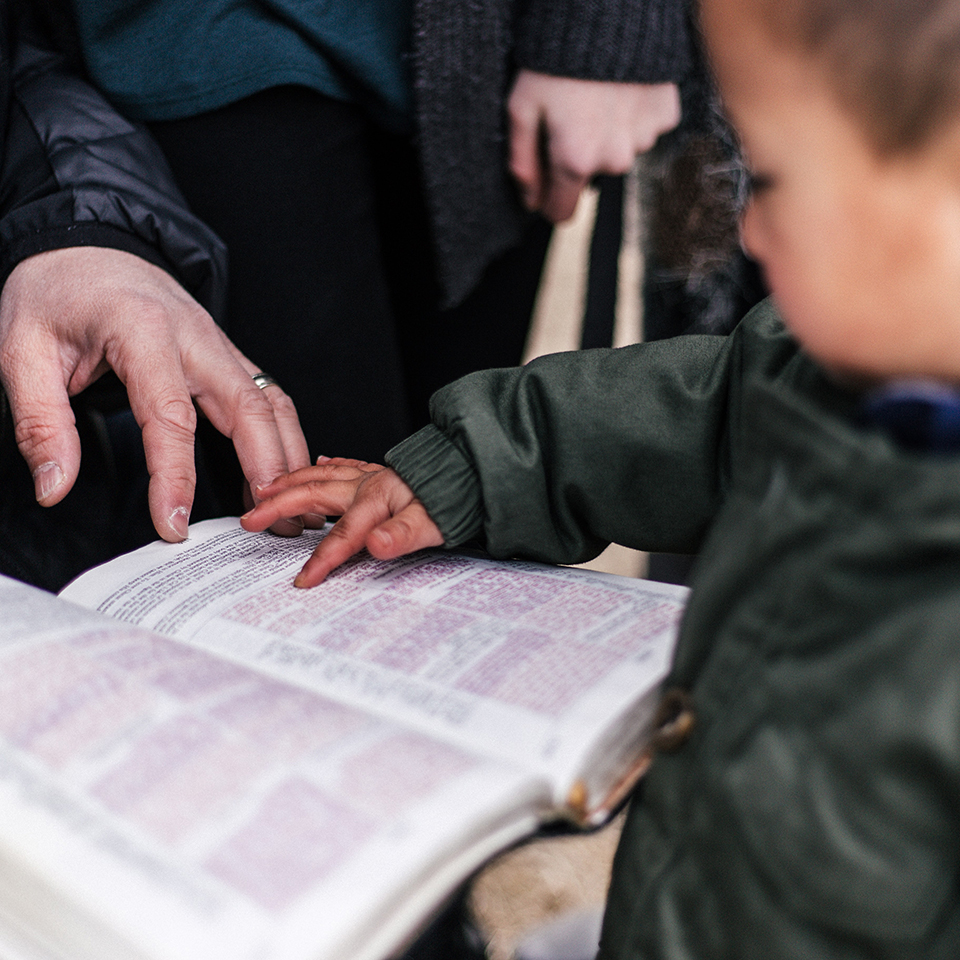Many commands are being issued today in response to COVID-19, and all for the good. But if you don’t mind, I’d like to call your attention to a perennial command to ponder as you’re at home realizing your parental duties: educate your children in the faith.
Parents are important witnesses to the faith in the lives of their children. Through them, the faith is handed on generation by generation. Jews have been heeding this command for millennia, so it might be good to learn some things from them, especially the importance they give to household religious education.
Years ago, a friend of mine was seriously studying Rabbinic Judaism, and he told me that part of the Talmud’s list of a father’s duties to his son is to teach him:
(1) the Torah(2) a craft(3) how to swim
Leaving aside the literal vs. metaphorical meanings of “to swim” and what it means to teach a craft today, I’d like to reflect on the importance of education in the household, primarily instruction in the Word. Many parents pass off the duty to educate their children in the basics of the faith to catechists. Like education in general, religious education is outsourced. But the Talmud says otherwise: parents are the primary educators. The faith will not be effectively handed on to the next generation if parents are not educating their children in the basics of the faith.
So while you’re stuck at home during this time of COVID-19, reclaim this parental duty and teach your children the basics. A good place to start is—no surprise—where the Catechism starts: the end (telos) of man.
The Baltimore Catechism’s emphasis on memorization and its question-and-answer methodology are useful. Unfortunately, these two aspects of catechetical education were dropped by most religious educators in the post-Vatican II Church for various reasons, primarily because of its stress on rote memorization and not on experience. But the overemphasis on experience has wrought a generation of un-catechized Catholics. The goal of every parent should be to teach their children the basics of the faith. This way you will help them read all of their experiences through the lens of the faith. The Baltimore Catechism, while not ideal, is pedagogically effective. Memorization, when coupled with experience, brings depth and breadth to a child’s religious education.
The first lesson of this catechism covers the end of man (i.e., what are human beings made for). This is smart. Children love to ask “why.” As burgeoning minds, they want to know the reason of things, including the reason they exist. The Baltimore Catechism works off this assumption. Questions 6 in Lesson 1, “Why did God make you?”, is answered with, “God made me to know Him, to love Him, and to serve Him in this world, and to be happy with Him forever in the next.” Simple but true. Drill that into your children just as the Jews instructed their children in the Shema found in Deuteronomy: “Hear, O Israel, you shall love the Lord, your God, with all your heart, all your mind, and with all your strength” (Deut. 6:4-5). The Shema is the greatest commandment in the Torah. Jewish parents were commanded to drill this into their children and speak of them (i.e., the words of the Shema) “at home and abroad, whether you are busy or at rest.” Too often, we teach our children that they’re made for their career, money, comfort, “well-being,” fame, etc. This is a disservice to them because they’re made for God.
Take this simple approach. You can find The Baltimore Catechism for free on Kindle and look at its clear and direct methodology. Bishop Robert Barron often uses this method in his teaching when he gives key takeaways, such as his “Three Paths to Holiness”:
1. Find the center.2. Realize you are a sinner.3. Your life is not about you.
Simple and memorable, yet profound. By giving your children this milk, you will eventually be able to give them solid food when they’re ready.
Once you cover the ‘“why” questions—which, in a way, entails the “what” questions—you can move onto the “how” questions, such as, “How does God enable me to do all these things?” That’s when you can tell them the story of salvation history, following the later part of Deuteronomy 6: “You shall say to your son, ‘We were once slaves of Pharaoh in Egypt, but the Lord brought us out of Egypt with his strong hand.’” Tell them the story of how Christ has completed this story through his Paschal Mystery, and get them ready to partake in that when you tune into Mass secluded at home.
We have been given this time to reflect on the essential things in life, one of which is the education of our children. Read Deuteronomy 6 and see how parents should educate their children. Reclaim your role as the primary educator of your children. Start simple, teaching them the reason for their existence. Teaching comes through learning. So memorize the basics of the faith and hand that onto your children through simple questions and answers as found in The Baltimore Catechism. Later, you can teach them how to swim through the Scriptures with Christ as their guide. In this way, you will imitate the pedagogy of our heavenly Father, the teacher par excellence.
And don’t forget to teach them from the great treasury of prayers of the Catholic Church, going beyond the Our Father or the Hail Mary. A Memorare or a Sucipe or the Angelus, committed to memory now, may give them precisely the words they need later when, in times of stress or anxiety, they are at a loss to find words of their own.

